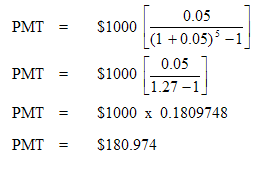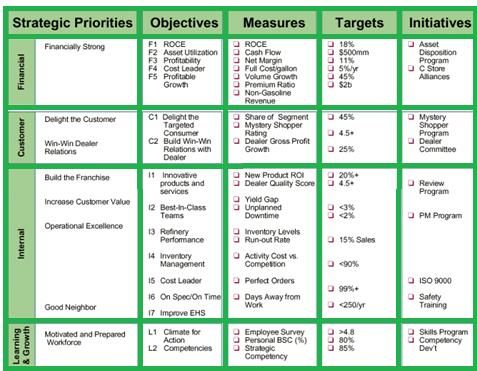Among the more common types of payroll fraud are not paying back an advance, buddy punching, and time sheet padding. According to court documents, Smith, who was employed by a Washington, D.C. To perpetuate the scheme, Smith would compile the weekly payroll information for each of the company’s employees to submit for approval by the company’s CFO. Payroll fraud is a serious offense, with severe punishments for those individuals who are proven to have carried it out. In July 2012 a British man who had carried out serious payroll fraud worth millions of pounds was sentenced to 17 years in prison.
- When an employee “punches in” for another employee, they both commit timesheet fraud.
- He holds the Irish Payroll Association’s Payroll Technician Certificate and is a member of its association.
- The only way to be secured against such fraud is to know how to detect them.
- Payroll fraud schemes are among the most damaging to a company because they tend to take place over a long period of time.
- This type of payroll fraud is almost exclusively committed by an employee at the company with access to the payroll system.
- In this payroll fraud, either employees’ grades are altered, or their hourly rates are changed to qualify them for a higher payment than they are entitled to.
Employees falsify their timesheets to include extra hours which they have not worked. This results in extra payments to employees, which they are not entitled to, causing financial loss to the organization. In some instances, employees get other co-workers to clock in and out for them when they are not working. It refers to the non-existent or fictitious employees being added to the payroll records. Payments for these employees are illegally diverted to other employee accounts or siphoned off through other means.
Can you sue for payroll fraud?
While you may never be able to create totally fraud-proof systems, there’s no reason you shouldn’t try. Misclassifying staff not only has financial implications but is also against the law. For instance, IRS’ Employer’s Supplemental Tax Guide for worker classification guidelines severely penalizes workers for misclassification. Fraud is more common in larger firms than in smaller ones, and it is more often when personnel is dispersed over multiple physical locations, but the payroll function is managed from a single site. This website is using a security service to protect itself from online attacks. There are several actions that could trigger this block including submitting a certain word or phrase, a SQL command or malformed data.

Cybercriminals who hack payroll records could use them to change direct deposit arrangements, steal from employees’ bank accounts and file fraudulent tax returns. One of your employees, for example, could doctor time sheets to increase the number of hours worked — and thus inflate his or her paycheck. And a hacker halfway around the world could access your payroll records and steal personal information to commit identity theft. But internal audits aren’t enough—adept employees can still get away with payroll fraud without external checks.
Review of payroll reports
Staff require training on understanding and implementing the risk management policy to ensure they maintain compliance and do their part to mitigate payroll fraud. Below, we cover the best practices for organizations to follow to prevent payroll fraud. Risk teams will need to thoroughly investigate these instances, and review scenarios where an employee’s time off is going on for longer than anticipated. Typically, this is the result of poor internal controls, in the form of lazy accounting and inadequate oversight procedures.
- Such fraud might utilise the valid payroll records for deceased or ex-employees.
- Since payroll fraud can take on various forms, it can also have different levels of severity.
- Separate responsibilities as much as possible, and ensure there are systems in place that hold staff accountable for their activity.
- You especially need to pay attention if you only have one employee who handles payroll at your small business.
In the frauds mentioned above, employers were the victims and scammed out of money by dishonest employees. However, misclassification is the exact opposite of that, as it is facilitated by the employer to scam employees out of the salaries/wages they are entitled. These practices have been deemed illegal and can have legal repercussions if caught within an organisation. Various employees have exploited this issue, as they have been caught adding names of employees who have never worked for the organisation to receive their payments.
Preventing the Most Common Types of Payroll Fraud
Unless you’re paying close attention, an expanding company can easily have an extra “employee” in its system. Payroll fraud is the act of stealing money from a business using the payroll system. If you’re new to payroll accounting, some of them may be unfamiliar to you, so let’s take a few minutes and brush up on our fundamental knowledge of payroll fraud and the way it is most commonly committed.
Maple & Ash owners accused of $7.6 million in PPP fraud – Eater Chicago
Maple & Ash owners accused of $7.6 million in PPP fraud.
Posted: Mon, 21 Aug 2023 15:47:50 GMT [source]
The party that’s been victimized can often sue to recover the money that was stolen from them. These types of cases are often subject to state labor laws, so contact a local lawyer if you’re considering a payroll fraud lawsuit. As we mentioned above, payroll fraud presents itself in a variety of forms. Payroll fraud is when an individual illicitly alters a payroll system to manipulate employee compensation. An employee arranges with his fellow employees to have them punch his hours into the company time clock while he takes the day off, which is known as buddy punching. Supervisory reviews and the threat of termination are the best ways to avoid this risk.
How to avoid fraud in business
If any amount seems unusual or excessive, investigate it for potential fraud. If buddy punching is a common or recurring issue, require workers to verify their identities with ID cards, face recognition or fingerprints, before providing access to time records. These forms of payroll fraud depend upon lax accounting and oversight procedures.
The claims often include false expenses for items or events that never took place. For example, claiming travel costs, and manipulation of receipts before being submitted. In addition, some employees claim to have lost their receipts to avoid presenting them and make false claims. When the payroll processing system is tampered with, a business is scammed out of cash by processes such as buddy-punching, unpaid advances, and time-sheet padding.
Common payroll scams
Payroll fraud occurs when an employee or employer manipulates a payroll system to take money they’re not entitled to. From misclassifying employees and padding hours to using ghost employees, payroll fraud takes on many forms, all of which threaten small businesses. In fact, payroll fraud is two times more likely to happen to small businesses when compared with large organizations.
The Attorney General provides Consumer Alerts to inform the public of unfair, misleading, or deceptive business practices, and to provide information and guidance on other issues of concern. Consumer Alerts are not legal advice, legal authority, or a binding legal opinion from the Department of Attorney General. For help preventing paycheck diversion, check out our guides on setting up direct deposit and the best pay card providers. Get up and running with free payroll setup, and enjoy free expert support.
You should regularly review payroll records to ensure there aren’t any ghosts on the books. Pay attention to unfamiliar names who share personal information with other employees, such as having the same home address or phone number. If you suspect fraud (or have discovered it and want to report it), start by keeping or gathering your evidence, as successful prosecution depends on accurate notes. Record dates and times, activities, and locations as applicable, and note the amount of money involved. If you can download the reports from the payroll software, store them in a separate file. Take screenshots with timestamps in case the evidence is tampered with later.
With a third-party responsible for managing your payroll system, employees have less opportunity to commit Payroll fraud. Avoid situations where an insider can aid the fraudster—or hide their own fraudulent activity better. Without these checks in place, it’ll be much harder to track and (therefore) much easier for fraudsters to do successfully. Separate responsibilities as much as possible, and ensure there are systems in place that hold staff accountable for their activity. If an employee is accidentally classified as exempt or an independent contractor, a routine review of payroll taxes may allow you to catch the mistake before too much damage is done. Some employers classify W-2 employees as 1099 employees to avoid paying taxes or health care insurance.
Businesses should maintain and strictly adhere to thorough accounting and anti-fraud policies at all times. In this scheme, employees collaborate with a payroll department employee to boost the amount of their hourly pay within the payroll system. Sometimes the deception takes place days before payday and is then changed back to the legitimate rate to evade detection. That’s why you should perform an audit to your company’s payroll records on a regular basis.

Within the European Economic Area (EEA), pay particular attention to the records of ex-employees who were migrant labour under the freedom of movement principle and who have returned to their home countries. The fraudster is able to illegally earn sick leave compensation, costing companies significantly. Without proper internal controls, this type of fraud can go unchecked—make sure staff need to provide a doctor’s note and validate the need for their time off. Monitor employee behavior for abnormal use of sick leave to try to catch these fraudsters in the act. Organizations must perform internal audits to check for pay rate alterations and falsification. Look for errors in the payroll register—inconsistencies should be investigated further to uncover this type of payroll fraud.
Therefore, businesses must stick to strict accounting procedures to ensure that all advances are appropriately accounted for, and the anti-fraud policies must be strictly adhered to. Employees have been observed to fake injuries at their workplace to claim insurance money. This is deemed a fraudulent activity and can also lead to severe legal repercussions. Such dishonest employees have been observed to scam insurance and self-insured companies out of millions. Therefore, insurance companies need to conduct an in-depth inspection of the nature and cause of injuries before they approve a large sum of money in favour of an employee claiming insurance money.
![Thu Mua Phế Liệu Hà Nội Giá Cao [UY TÍN] Hỗ trợ 24/24](https://thumuaphelieuhanoi.com/wp-content/uploads/2021/07/logo-chuan.jpg)
![Thu Mua Phế Liệu Hà Nội Giá Cao [UY TÍN] Hỗ trợ 24/24](https://thumuaphelieuhanoi.com/wp-content/uploads/2021/07/thu-mua-phe-lieu.jpg)
